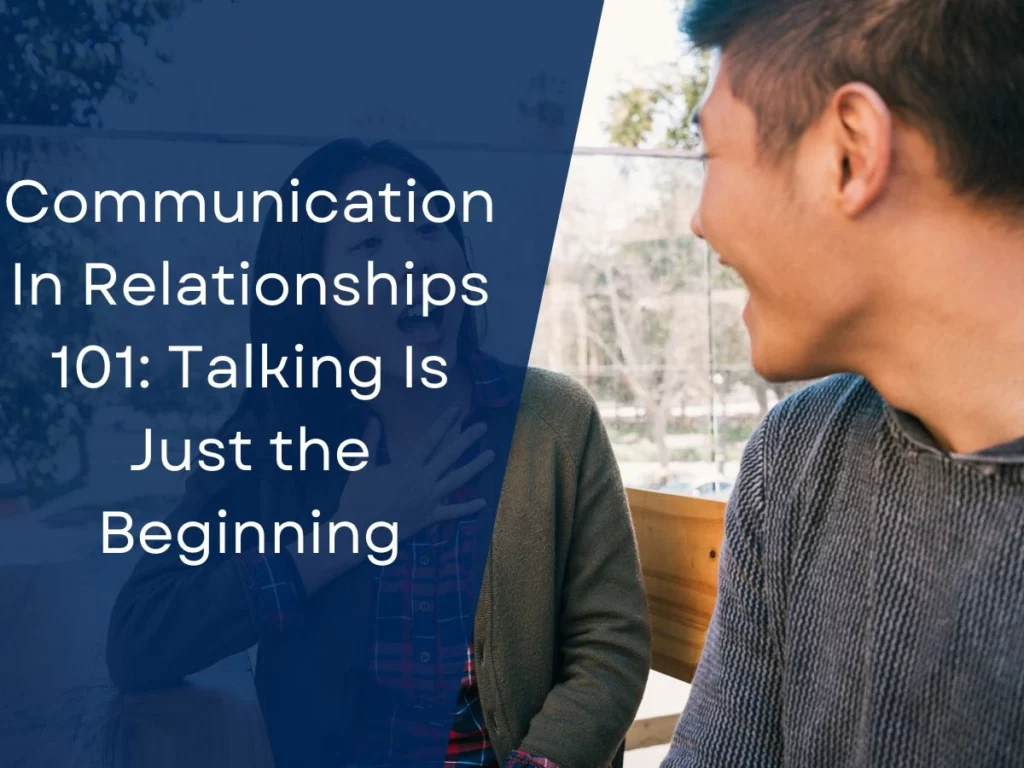When is the last time you talked to your family? Not just a chat but a meaningful conversation? The fact is that communication in relationships is often more difficult than it seems. Every day we talk to people all day long.
We are always chatting with our husbands, wives, children, and friends. But in many of these cases, we aren’t communicating as profoundly as we should, especially with those that we love the most.
To understand how to improve communication in relationships, we have to understand what each person is trying to say and offer responses that show that we care. Depending on what family member we are speaking to, we want to alter our communication just enough so that we can show full appreciation for what each other is genuinely trying to say.

What is Good Communication?
Legitimate communication is not only about talking but also making a concentrated effort to listen to what the other person is saying. That is even more important when we talk about communication in relationships.
The most significant factors that go into good communication include active listening, the nonverbal cues, and mannerisms you display, and the respect you give while speaking and listening. Effective communication also involves being aware of the emotions that the other person is feeling and expressing while they talk.
Finally, communication in relationships is about the two E’s: empathy and encouragement. Emphasizing is the act of trying to see things from other people’s point of view and using that information to respond properly.
Even if someone is coming from a point of view you are not familiar with or that you do not agree with, good communication involves encouraging the other to say what is on their mind.
These are the core elements of proper communication in relationships. These elements should be tweaked depending on with who you are speaking. So you would approach a conversation with your spouse somewhat differently than you would a conversation with your spouse.
Negative Habits That Hurt Communication in Relationships
One of the first steps to achieving effective communication in relationships is knowing what not to do when speaking with those we love. While we want to communicate differently depending on who we are talking to, there are certain negative habits that we want to avoid in all situations.
In many cases, some of these negative traits could be so detrimental that they could shut down any future communication. What most of these negative habits revolve around is giving the unintentional signal that you are not interested in what the other person has to say.
- Not Controlling Emotions
- Multitasking
- Constantly Interrupting
- Being a Fixer
Tips for Effectively Communicating with Your Spouse
When it comes to proper communications in relationships, especially in families, one of the most important factors is how you speak to your significant other. Whether you are in a traditional or blended family, how you and your spouse interact can influence how the children interact — now and in the future.
Set a good example with these communication tips.
- Make communication in relationships a priority
- Learn to listen
- Be open to communication
- Don’t criticize
Tips for Effectively Communicating with Your Children
Adequate communication in relationships also applies to your kids. When you are speaking to your children, you will still employ active listening and show respect. However, since your children will usually talk about different things than your spouse, you can use slightly different tactics.
- Give them your full attention
- Acknowledge their feelings
- Communicate to teach
Tips for Effectively Communicating with Stepchildren
Though blended families are a wonderful thing, stepchildren that are new to your home will always need time for adjustment. The best way to welcome stepchildren into the fold is to start a good foundation through proper communication.
- Treat them as you would your children
- Communicate with expectations
- Don’t force communication
Get Everyone Involved in Family Meetings
If you have a large family or it is difficult to find time to speak to all of your loved ones, a viable solution is a family meeting. These daily or weekly events can improve communication in relationships tenfold because they give everyone in the family a chance to share their thoughts and feelings.
- Encourage everyone to attend
- Give everyone in the family a chance to lead
- Solve one issue at a time
How to Communicate During Tough Conversations
Even the most amicable of families will face a few tough situations here and there. Whether you need to talk to a child about bad grades in school or speak with your spouse about financial problems, these conversations need to handled with a certain level of grace.
- Don’t over prepare
- It is all about timing
Flawless Communication Will Not Happen Overnight
The most important thing to remember when trying to improve communication in relationships is that there is always room to grow. A family is full of different personalities, and there is no one-size-fits-all approach to communicating with everyone in the household.
Remind yourself that communication in relationships is a two-way street. It is not only about what you say but how you listen. Try to see things from the other person’s point of view. Empathize with them. Enter every conversation with an open mind.
Work on your communication skills over time. In the end, a family who works to communicate properly is a happy family that can get through anything.
